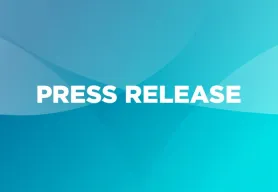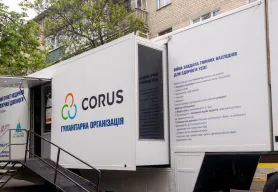Honduras faces severe health challenges driven by intersecting crises such as climate change, poverty, and violence. The country’s rural communities are particularly vulnerable, with climate change disrupting agricultural livelihoods and fueling food insecurity. Honduran youth grapple with job insecurity and unemployment. Women in Honduras face the highest risk of femicide in Central America, and one in three experience violence against women and girls. As a result, many Hondurans are migrating in search of stability and safety, and the country’s stretched health resources are overwhelmed. Mental health care is particularly scarce, with just 0.06 providers per 100,000 people, leaving individuals struggling with issues like depression, anxiety, and post-traumatic stress disorder (PTSD) without adequate support.
Corus organizations IMA World Health and Lutheran World Relief are working together to address these interconnected challenges and foster holistic well-being as well as opportunities for a brighter future in Honduras.
Project Highlights
In partnership with Red Institutos Comunitarios (Red-ITC), we implement the Creating Spaces for Youth Employability (CREE) project, building on the work of Youth in Agri-business: Ensuring the Employment of Tomorrow that emphasized climate change adaptation while improving income and job opportunities in the agricultural sector for youth within Honduras’ Dry Corridor. The CREE project trains 1,100 young participants from 22 municipalities in seven departments of Honduras. In addition to supporting life skills and context-relevant work competencies, the project prioritizes the use of information and communication technology for employability and entrepreneurship. By piloting an innovative virtual platform, EmpleandoMentes (or “Employing Minds” in English), the project integrates technology and extension services to support holistic well-being. The EmpleandoMentes digital platform connects young people with livelihoods assistance and online community while providing personalized virtual psychosocial support. It offers practical, easily digestible information on soft skills, self image, resilience, leadership, inclusion and other essential topics for holistic human development. The platform employs engaging audiovisual formats to capture the attention of young people in the region, and it also serve as a platform for free professional guidance on mental and emotional health topics.
The Youth in Agri-business project in rural Honduras addressed gaps in youth employment opportunities in the coffee sector through strengthening youth’s transferable skills as technical advisers, rural promoters and coffee quality experts according to market demand; creating new job opportunities for trained youth; and facilitating opportunities for youth entrepreneurs to realize their potential through new agri-business ventures.
With funding from Global Affairs Canada and in a partnership led by Mennonite Economic Development Associates of Canada (MEDA), Lutheran World Relief implements the Opportunities for Circular and Inclusive Diversification in Agriculture (OCIDA) project in the Dry Corridor of Honduras. The OCIDA project is a five-year comprehensive initiative that promotes sustainable and inclusive development in the cacao and coffee sectors. By focusing on circularity, climate resilience, and the empowerment of women and youth, OCIDA aims to improve the lives of 7,000 producers in the departments of Departments of Copán, Santa Bárbara, Ocotepeque, Lempira, Intibucá, and La Paz. The project focuses on supporting farmers in diversifying their agricultural practices and promoting agricultural circularity, a farming strategy that aims to minimize waste and maximize resource efficiency. This is achieved through technical assistance and training in agroforestry, post-harvest handling, quality standards, and other value-addition services. The capacity of women and youth producers is strengthened and promoted through access to climate-resilient agri-food technologies and services (CGRC) products. Lutheran World Relief assists with identifying and working both with CGRC users and suppliers, adapting their relevant e-platforms to facilitate linkages.
MOCCA is a multi-country initiative led by Technoserve and funded by the U.S. Department of Agriculture's Food for Progress Program that helps Latin American farmers overcome the barriers to effectively rehabilitate and renovate their coffee and cocoa plants – increasing their productivity while improving their marketing capacity, incomes and livelihoods. Honduras is one of six countries that is part of the 5-year, $10.5 million project. Lutheran World Relief leads MOCCA’s cacao programming, helping farmers sell more at better prices, improving farmer productivity and enhancing sector coordination to drive competitiveness and growth.
Along with local partner El Instituto Hondureño del Café (IHCAFE), we helped youth find employment or become small business entrepreneurs in the coffee sector, building their skills in coffee production and post-harvest handling practices. Youth learned about improved cultivation techniques and how to use technology, such as IHCAFE’s digital coffee app CafeMovil, which provides instant access to an online toolbox of coffee cultivation manuals that supplies in-depth responses to coffee cultivation questions.
As part of the USAID-led Feed the Future initiative, the Women in Agriculture project influenced municipal regulations, institutional policies and social norms in Western Honduras to reduce gender-based gaps in access to resources for productive enterprises. In addition to influencing policy and empowering women and women’s groups, the project employed an innovative masculinities methodology to promote changes in men’s attitudes towards women’s political and economic participation. By creating a more inclusive local agricultural economy, these activities strengthened local governments, established effective community councils, increased female leadership and channeled national investments to the region into infrastructure and socio-economic programs.
In the department of Francisco Morazán, Lutheran World Relief worked to establish sustainable community agricultural production in an area unable to produce sufficient food to meet household requirements. Activities included: sustainable water management; distribution and training with improved seeds in collaboration with the Secretary of Agriculture; and establishment of demonstration plots using tunnel greenhouses and organic fertilizers. Lutheran World Relief helped establish committees for the long-term management of natural resources and exchange of information. Food security projects in the municipalities of Copán Ruinas, Santa Rita and Cabañas Copán benefited Chortí Maya Indigenous groups and ensured community members were equipped with improved production practices in family vegetable gardens and in the post- and pre-harvest processing of coffee for cash sale.
Amid the global COVID-19 pandemic, Hurricanes Eta and Iota destroyed the homes and livelihoods of countless Honduran families. We provided emergency shelter, food and WASH assistance as well as psychosocial support to allow families to start rebuilding their lives. We also focused on hygiene responses to help mitigate the spread of COVID-19 immediately after the storms.
With emergency response funding from Margaret A. Cargill Philanthropies, we improved community resilience through organizational strengthening in disaster risk management in the drought-stricken department of Lempira. With the involvement of women- and youth-led networks, we collaborated with emergency committees at the community and municipal levels to promote the adoption of innovative practices and technologies for water harvesting and management. In the same region, we provided emergency food aid and personal protective equipment to meet critical household needs resulting from income loss amidst the COVID-19 pandemic.

The Corus Effect
Founded in 1960, IMA World Health is part of Corus International, an ensemble of long-serving, global leaders in international development and humanitarian assistance committed to ending poverty and building healthy communities across Asia, Latin America and the Caribbean, the Middle East, and Africa.
In addition to IMA World Health, the Corus family includes global aid and development organization Lutheran World Relief, U.K.-based technology for development company CGA Technologies, impact investing firm Ground Up Investing, and direct trade company Farmers Market Brands.
Alongside communities and local partners in fragile settings, our dedicated experts across our organizations integrate disciplines, approaches and resources to overcome global health challenges, develop productive and stable economies, improve resilience in the face of climate change, and respond to natural disasters and humanitarian crises. We invest in solutions that are innovative, scalable, holistic and move the needle towards transformational change.




